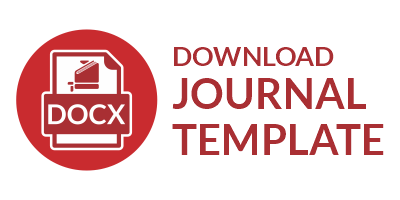Publication Ethics
Jurnal Tematik is fully committed to upholding academic integrity and the highest ethical standards in all scientific publication processes. This publication ethics statement adheres to the guidelines of the Committee on Publication Ethics (COPE) and applies to all parties involved in the journal's publication process: Editors, Reviewers, Authors, and the Publisher.
Duties and Responsibilities of Editors
-
Publication Decisions: Editors are fully responsible for deciding which manuscripts are worthy of publication based on their scientific significance, originality, and clarity. This decision also considers editorial board policies and legal requirements regarding defamation, copyright infringement, and plagiarism.
-
Fair Play: Manuscripts are evaluated based on their intellectual content, without regard to the race, gender, sexual orientation, religious belief, ethnic origin, citizenship, or political philosophy of the authors. Editors must ensure a fair, efficient, and timely peer-review process.
-
Confidentiality: Editors must not disclose any information about a submitted manuscript to anyone except the corresponding author, reviewers, potential reviewers, other editorial advisors, and the publisher, as needed.
-
Disclosure and Conflicts of Interest: Unpublished material in a submitted manuscript must not be used in an editor's own research without the author's written consent. Editors must also recuse themselves from the editorial process if there is a conflict of interest.
-
Corrections and Retractions: Editors facilitate the publication of corrections, clarifications, or retractions of articles if significant errors or ethical violations are discovered.
Duties and Responsibilities of Reviewers
-
Contribution to Editorial Decisions: Reviewers assist editors in making publication decisions and provide constructive feedback to help authors improve their manuscripts.
-
Timeliness: Reviewers should only agree to review manuscripts for which they have the subject expertise and can complete the review in a timely manner.
-
Confidentiality: All manuscripts received for review must be treated as confidential documents. They must not be distributed or discussed with others without permission from the editor.
-
Objectivity Standards: Reviews must be conducted objectively. Personal criticism of the author is not allowed. Reviewers must express their views clearly with supporting arguments.
-
Source Acknowledgment: Reviewers should identify relevant published works that have not been cited by the authors.
-
Disclosure and Conflicts of Interest: Reviewers must not review manuscripts where they have a conflict of interest stemming from a competitive, collaborative, or other relationship with the authors, companies, or institutions associated with the manuscript.
Duties and Responsibilities of Authors
-
Reporting Standards: Authors of original research reports must present an accurate account of the work performed and an objective discussion of its significance. Underlying data must be represented accurately. The manuscript should contain sufficient detail and references to allow others to replicate the work. Fraudulent reporting or intentionally inaccurate statements constitute unethical behavior.
-
Originality and Plagiarism: Authors must ensure their work is entirely original. If they have used the work and/or words of others, these must be appropriately cited. Plagiarism in all its forms is unacceptable.
-
Multiple, Redundant, or Concurrent Publication: Authors should not publish manuscripts that essentially describe the same research in more than one journal. Submitting the same manuscript to more than one journal simultaneously is also unethical publishing behavior.
-
Source Acknowledgment: Proper acknowledgment of the work of others must always be given. All sources of financial support for the project must also be disclosed.
-
Authorship: Authorship should accurately reflect the individual contributions to the work and its reporting. All authors must approve the final version of the manuscript.
-
Disclosure and Conflicts of Interest: All authors must disclose any financial or other substantive conflicts of interest that could be construed to influence their manuscript's results or interpretation.
-
Fundamental Errors in Published Work: If an author discovers a significant error or inaccuracy in their published work, it is the author's obligation to promptly notify the journal editor or publisher and cooperate to retract or correct the manuscript.
-
Use of AI Tools: The journal allows for limited use of generative AI tools for writing support (e.g., language editing or phrasing). However, these tools are not to be used to create the main scientific content or data analysis. AI cannot be listed as an author, and authors must explicitly state if they have used AI tools, while remaining fully responsible for the accuracy and ethics of the generated content.
Duties and Responsibilities of the Publisher
-
Relationships and Confidentiality: The publisher defines the relationship between the publisher, editor, and other parties, and protects the privacy of all involved.
-
Copyright and Intellectual Property: The publisher defends intellectual property and copyright.
-
Editorial Independence: The publisher promotes and upholds editorial independence.
-
Ethical Oversight: The publisher works with editors to ensure that all journal policies, including research ethics and academic integrity, are met.
-
Transparency and Availability: The publisher maintains the integrity of the academic record, publishes content in a timely manner, and assists with investigations into alleged misconduct.







